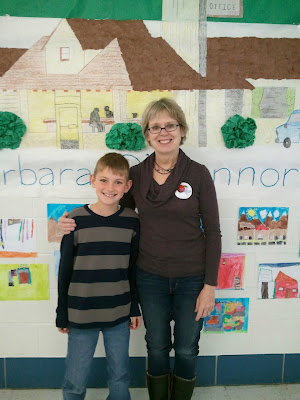I love when parents take the time to write a letter like this:
Dear Barbara O'Connor:
My name is M__. I have a ten year old son, his name is P__. He usually gives me such a hard time when it comes to reading daily. We recently discovered the books you've written in our local library and have enjoyed them so much!!
Our first book we read was How to Steal a Dog. I picked that one on a whim simply because of the title. What a great read!!
I usually pass our read around and we take turns but I admit if I like the book I keep it (to do the voices).We really enjoyed this one and I was on the verge of tears near the end when she gives back the dog.
Of course I HAD to find another book you wrote the day after I finished it.
Tonight I picked back up The Small Adventure of Popeye and Elvis we've been reading. My son has commented several times that he can picture all of it in his head. I agreed... . Tonight when I started getting bleary-eyed he took the book over and even with many chapters to go finnished the book with tears in his eyes... . I fell asleep but he assured me it was even better than your first one we read.( I'll have to read it again).
Anyway, thank you from the Mom of a VERY reluctant reader. May you stay warm and blessed!













































